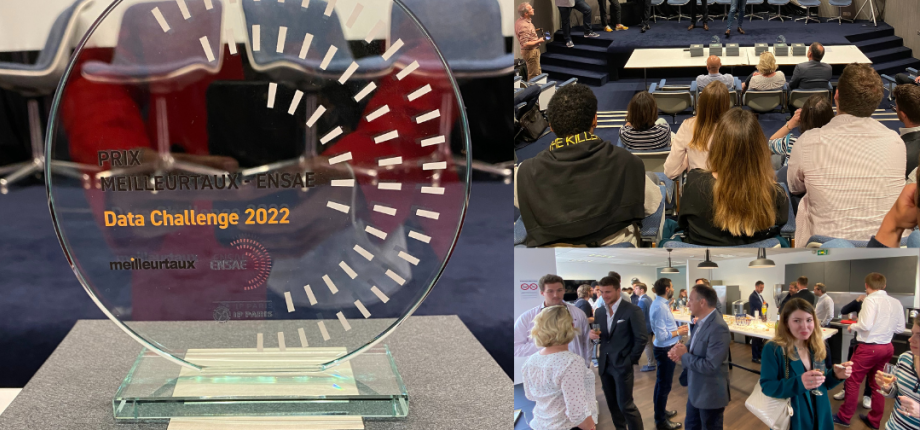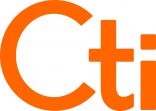Data Science and Business Decision



The third year of the ENSAE Paris engineering program includes six specialization tracks. Each track has been designed to offer a coherent sequence of courses (advanced theoretical courses, applications, projects, seminars, etc.), preparing students for a major field of work and giving them a broad and in-depth vision of that field. Each of the professions practiced by ENSAEs will call to varying degrees on statistical methods, data science and modeling, which are therefore present within each track.
Learn more about admissions to the engineering program
The "Data Science & Business Decision" track offers a complete range of decision support tools for companies, based in particular on methods developed in data science.
Profiles
The "Data Science & Business Decision" track offers a complete range of decision support tools for companies, based in particular on the methods developed in data science. The business decisions concerned affect many aspects of business life:
- companies' relationships with their customers: pricing policies, marketing actions, advertising strategy, etc. ;
- interactions with competitors, customers and suppliers, growth and innovation strategies, etc;
- governance and financial strategy: investment decisions and financing, valuation methods, mergers and acquisitions;
- internal management: steering, management control, human resources, etc.
The main fields of application at the heart of the program are industrial economics (business and market economics), corporate organization and finance, and quantitative marketing. The courses develop the theoretical foundations of the tools presented, as well as their practical implementation by means of the most recent quantitative methods (particularly in statistical learning and structural econometrics). The track offers as an option all the courses in statistics and econometrics useful for applications to economic and financial decision-making in companies.
Careers
The career opportunities in this program are varied. A first category of jobs relates to the design and evaluation of innovative marketing strategies, particularly new pricing systems. Several required courses, such as Empirical industrial organization and Quantitative marketing, explain how companies can exploit the data at their disposal to inform their strategies. The emergence of massive databases allows for a better understanding of consumer behavior. A better knowledge of demand allows companies to optimize their offer, in particular their dynamic pricing offers (revenue management). These developments have historically concerned a few specific sectors (air or rail transport, hotel reservation platforms, etc.), but they are now spreading to vast areas of the economy. At the same time, companies are increasingly interested in measuring ex post the effectiveness of their marketing actions - an area in which econometric methods developed for the evaluation of public policies are finding a new application.
The path also gives access to all the professions in microeconomics that relate to competition and the functioning of markets. For example, in conjunction with regulators, this may involve analyzing the effects of a merger or ensuring that a company's pricing practices comply with the rules of competition law. In general, a precise understanding of the company's organization and an in-depth training in industrial economics and market risk management are required for consulting jobs, whether it be organizational consulting (e.g. improving the structure of a company following a merger-acquisition) or strategic consulting (e.g. advising companies on their growth strategy).
In summary, the Data Science & Business Decision track trains students in modern quantitative methods while giving them a global vision of the company and its environment. It enables them to acquire operational skills in a wide range of professions and sectors of activity. Several elective courses explore particularly strategic sectors of the economy, which are called upon to develop or evolve in their organization: energy, online commerce, collaborative economy, transportation and urban economy, insurance and health. The curriculum is complemented by courses in accounting and financial strategy, management control, and law (including predictive justice and data law).
The program prepares students to take on high-level responsibilities in large companies (economic departments and finance departments), but also to participate in the development of young innovative companies. Students will also find opportunities in financial organizations, consulting and economic research firms, law firms, national or international administrations, and competition and sectoral regulation authorities (Arcep, Arafer, etc.). Finally, the program provides a solid theoretical and empirical foundation for students who wish to continue their training with a doctorate in economics and then move on to academic careers.
Business data challenge
A company proposes, in collaboration with the school's teacher-researchers, an economic or financial topic and provides the data on which several groups of students work from November to May. Each group is supervised by both teacher-researchers from the school and a specialist from the sponsoring company. The work is evaluated by a jury and the best work is rewarded with a prize. The Business Data Challenge, in its conception and follow-up, benefits from the support of Datastorm, the private subsidiary of GENES.
Most of the work done by the students in the framework of this project concerns the analysis of the business problems proposed by the company, the modeling and the implementation of data science techniques (econometrics and machine learning) on the real data provided by the sponsor company. Particular care is taken in the choice of methods so that they meet the problematic formulated by the company. The project must be seen as a data-intensive study, in a "research and development" perspective, aiming to explore and test new ideas to improve the company's strategy in one or more dimensions.
The final production consists of a 20-page dissertation, a presentation of the documented computer codes, and an oral presentation to the jury. The team that proposes the best solution will win a prize.
Teaching
The compulsory scientific courses and the optional courses recommended for the track are described below. Each semester, you can choose one modern language (maximum). English is compulsory if your level is lower than B2. The options can be mixed between the different tracks (under time constraints) to create hybrid profiles. It is then recommended to discuss their coherence, as well as the articulation of the choice of courses with a possible M2 followed in parallel, with the Master studies director or/and the person in charge of the tracks.
The courses listed below are for informational purposes only, and are provisional. They correspond to the official curriculum for the 2025-26 academic year.
You can find this curriculum in PDF format on the ENSAE intranet: Scolarité => Troisième année => Près-requis et choix des voies => Schéma_UE_3A_2025_2026.
First semester
- Second year internship: 7 ECTS credits for the 1st semester of the 3rd year
- Integrated curriculum
| Course | ECTS | Hours (course+tutorials) |
|---|---|---|
| Empirical Industrial Organization or Empirical methods for business decisions | 4 or 3 | 24+0 or 18+0 |
| Microeconometric Evaluation of Public Policies or Theory of Industrial Organization or Applied Statistical Learning | 4 | 24+0 or 15+9 |
| Ethics and responsibility in data science | 2 | 12+0 |
You can choose from 3 to 7 options (including foreign language) from the entire 3A course catalog, semester 1 (subject to compatibility with your schedule), to reach a total of 30 to 32 ECTS for the semester. We recommend the following courses in this track:
| Course | ECTS | Hours (course+tutorials) |
|---|---|---|
| Corporate Financial Strategy | 3 | 18+0 |
| Applied Statistical Learning | 4 | 15+9 |
| Algorithm Design and Analysis | 3 | 18+0 |
| Econometrics of Competition (X) | 4 | 24+0 |
| Dynamic pricing and revenue management | 3 | 18+0 |
| Entrepreneurship 1 | 3 | 18+0 |
| Environmental Economic: Analysis and Modelling | 4 | 24+0 |
| Modeling and managing energy risks | 2 | 12+0 |
| Health Economics | 3 | 18+0 |
| Marketing | 2 | 18+0 |
| Theory of Industrial Organization | 4 | 24+0 |
| Valuation of startups (X) | 2 | 27+0 |
| Hi!ckathon | 2 | 0+0 |
Second semester
| Course | ECTS | Hours (course+tutorials) |
|---|---|---|
| Data Business Cases (seminarà | 2 | 12+0 |
| Business Data Challenge | 6 | Project |
You can choose from 3 to 5 options (including foreign language) from the entire 3A course catalog, semester 2 (subject to compatibility with your schedule), to reach a total of 30 to 31 ECTS for the semester. We recommend the following courses in this track:
- The end-of-study internship: 10 ECTS credits for the 2nd semester of the 3rd year










